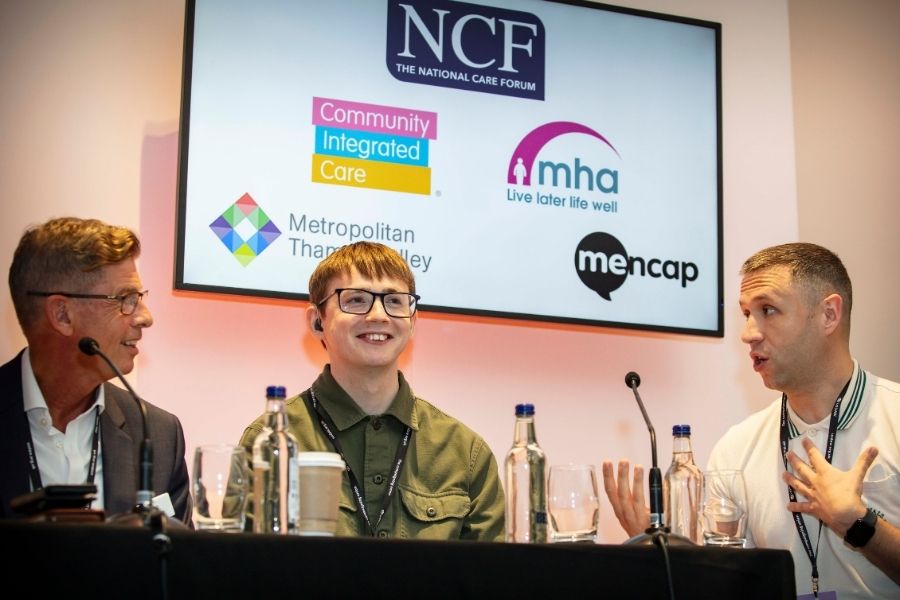MHA at political party conferences – giving a voice to social care

At its heart, MHA is about enabling people to live later life well. This means trying to improve what’s possible for older people and the brilliant professionals who work with them - and using our voice to influence policymakers on their behalf.
That’s why we’ve been at all three major party conferences this year, seizing the opportunity to campaign for social care professionals to be better valued for the work that they do. As the UK moves towards a General Election, attending the events gave us an opportunity to gauge how much social care is being prioritised by the leading political parties.
We hosted our own events at the conferences to rooms packed full of people wanting to see change in social care, as well as the people in a position to make change happen. For the MHA team, this gave us a platform to voice our concerns and ideas about the future of social care, and to make sure it remains on the political agenda.
My major takeaway was that there’s some real variation amongst the parties in terms of the spotlight being shone on social care.
For the Conservative Party, while they are aware of the challenges facing the care sector, particularly around our need to protect the workforce, the conference itself was quite light on detail. We did have some productive conversations with ministers there, however, who were enthusiastic about the thinking behind our Social Care Council, which we announced as part of our Fix Care For All campaign.
The Council would act as an independent body, representing the 1.5 million people working in social care who deserve a long-term sustainable and professional system of training, pay and recruitment.
There was a lot of support for a nationally coordinated approach at the Labour Party conference, particularly in the fringe meetings we attended. Labour itself has been discussing the idea of a National Care Service (NCS), which would aim to tackle issues around pay and professionalisation, as well as creating a more level service nationally. However, the concept seems to mean different things to different people, and I came away feeling there needs to be more clarity around the messaging before we can assess how good an NCS would be for the sector.
It was at the Liberal Democrats conference that some detailed conversations were taking place, and social care appears to be a big priority for the party. Their leader Sir Ed Davey MP was vocal in his belief that social care is one of the biggest challenges currently facing the country, and the party have pledged their support for the concept of a Social Care Council.
None of us know what will happen when the UK goes to the polls, so it was encouraging to receive support from a party that may have some sway when it comes to engaging with voters or influencing future policy.
Attending party conferences means we can give a voice to social care where it matters most. I am particularly proud of how the not-for-profit care sector has worked together to do this, sending a clear message to politicians that social care must be a priority. With more people relying on social care in later life and fewer people entering the profession, we need to make a clear offer to the next government about the quality we deliver and the values that drive us.
But it doesn’t end here: until we can take a good look at the election manifestos we don’t know what the rhetoric will really mean for the provision of good quality care in the long-term. At MHA, we are committed to working with any party that fully commits to protecting and investing in the sector and the brilliant people who work in it. The work goes on to make this a reality – you can be part of this journey by signing our Fix Care For All petition here.


